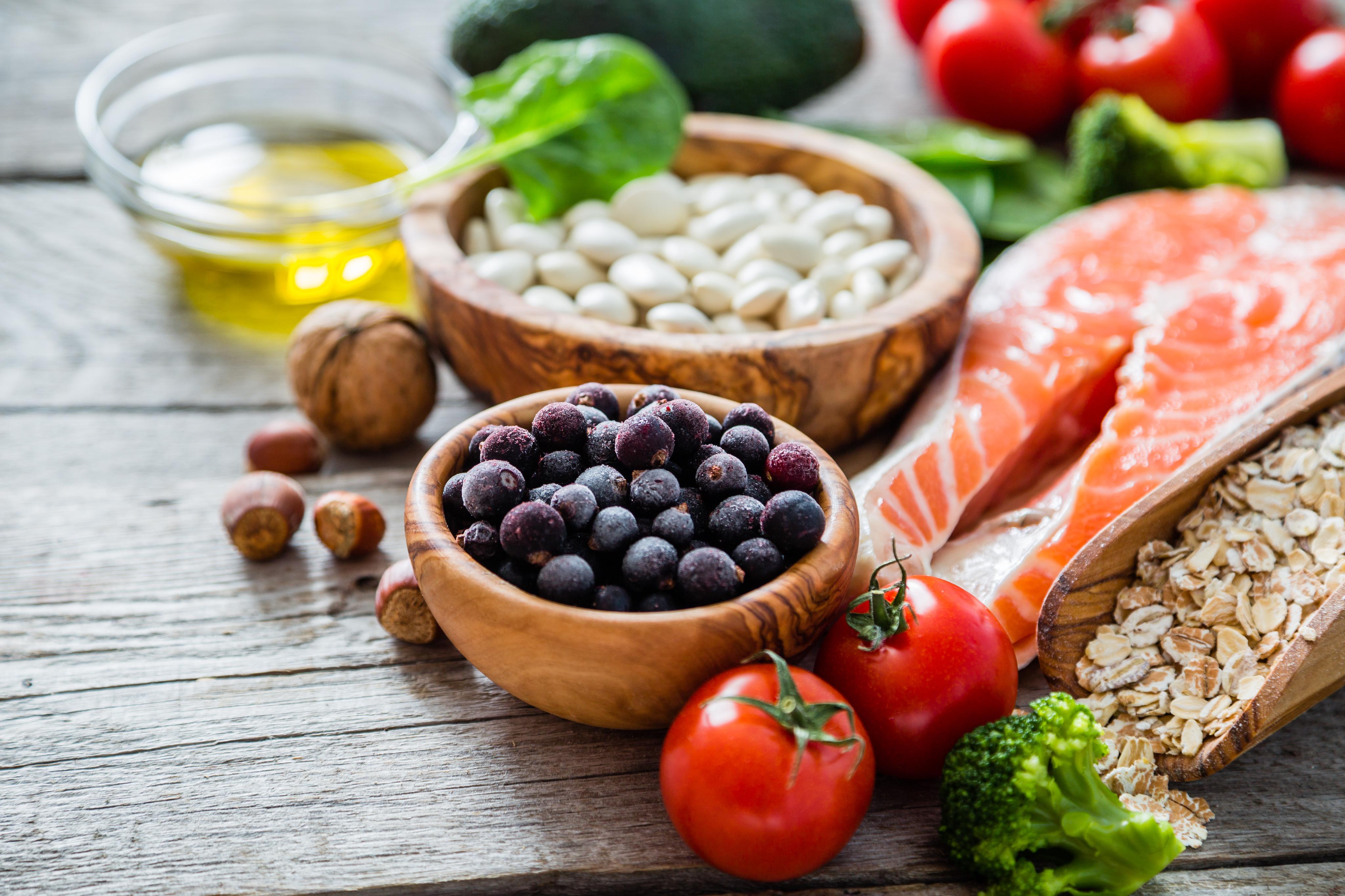The Ultimate Guide to Women's Nutrition: A Lifelong Journey
Ever wondered why your nutritional needs seem to shift throughout your life, unlike, say, your male partner's? It's because your body, at every stage, has unique demands. Let’s unpack how to fuel your body for optimal women's health.
Understanding the Unique Nutritional Needs of Women
Female nutrition is far from a one-size-fits-all concept. Women’s bodies undergo significant hormonal changes during different life stages – puberty, menstruation, pregnancy, lactation, and menopause – each impacting their nutritional requirements. Ignoring these fluctuations can lead to deficiencies, impacting energy levels, mood, bone health, and overall well-being. For example, the need for iron increases significantly during menstruation to compensate for blood loss. Therefore, a diet for women must be carefully tailored to meet these evolving needs. Statistics show that women are more likely to be iron deficient than men, highlighting the importance of this nutrient in their diet.
Moreover, hormonal balance plays a crucial role in women's health. Certain nutrients can support hormonal regulation, while deficiencies can disrupt it. For instance, adequate intake of omega-3 fatty acids can help reduce inflammation associated with menstrual cramps. Conversely, excessive consumption of processed foods and sugary drinks can contribute to hormonal imbalances, potentially leading to conditions like PCOS (Polycystic Ovary Syndrome).
Essential Vitamins and Minerals for Women's Health
While a balanced diet should always be the foundation, certain vitamins for women and minerals for women are particularly crucial for maintaining optimal health. These nutrients play vital roles in various bodily functions, from energy production to bone density.
| Vitamin/Mineral | Why It's Important | Food Sources |
|---|---|---|
| Iron | Supports red blood cell production, preventing anemia. Vital for energy and cognitive function. | Lean red meat, poultry, beans, lentils, spinach. |
| Calcium | Essential for strong bones and teeth, nerve function, and muscle contraction. | Dairy products, leafy green vegetables, fortified plant-based milks. |
| Vitamin D | Helps the body absorb calcium, supports immune function, and may reduce the risk of certain diseases. | Fatty fish, fortified foods, sunlight exposure. |
| Folate (Vitamin B9) | Crucial for cell growth and development, especially important during pregnancy to prevent neural tube defects. | Leafy green vegetables, beans, lentils, fortified grains. |
| Vitamin B12 | Essential for nerve function, DNA synthesis, and red blood cell formation. | Meat, poultry, fish, dairy products. Vegans may need supplements. |
| Omega-3 Fatty Acids | Supports heart health, brain function, and reduces inflammation. | Fatty fish (salmon, tuna, mackerel), flaxseeds, chia seeds, walnuts. |
Iron Deficiency Anemia in Women
Iron deficiency anemia is a common issue among women, especially during menstruation and pregnancy. Symptoms include fatigue, weakness, pale skin, and shortness of breath. Addressing this deficiency through diet and, if necessary, supplementation, is crucial for maintaining energy levels and overall health.
Calcium and Bone Health
Women are at a higher risk of osteoporosis than men, making adequate calcium intake essential for maintaining bone density. Combining calcium-rich foods with weight-bearing exercise can further enhance bone health.
The Importance of Vitamin D
Vitamin D deficiency is widespread, particularly in individuals with limited sun exposure. Supplementing with vitamin D, especially during winter months, can help maintain optimal levels and support various aspects of health, including bone health and immune function.
Nutrition During Pregnancy and Lactation
Pregnancy nutrition is paramount for both the mother's health and the baby's development. During pregnancy, the body requires more of certain nutrients, including folate, iron, calcium, and protein. Folate is crucial in the early stages to prevent neural tube defects. Iron needs increase to support the increased blood volume and fetal development. Calcium supports the baby's bone growth, and adequate protein ensures proper tissue development. It's also very important to avoid certain foods that can harm the fetus, such as raw fish and unpasteurized dairy products.
Lactation also places unique demands on a woman's body. Nutrient needs remain elevated to support milk production and provide the baby with essential nutrients through breast milk. Continuing to prioritize a balanced diet rich in essential vitamins and minerals is crucial during this period. Staying adequately hydrated is also essential for milk production. According to the American Academy of Pediatrics, exclusive breastfeeding is recommended for the first six months of life, highlighting the importance of proper maternal nutrition.
Navigating Nutrition During Menopause
Menopause nutrition focuses on managing symptoms and maintaining long-term health as estrogen levels decline. This hormonal shift can lead to weight gain, bone loss, and increased risk of heart disease. A diet rich in calcium and vitamin D is essential for preventing osteoporosis. Managing weight can be accomplished by eating lots of vegetables and lean protein while moderating carbohydrate intake. Foods rich in phytoestrogens, such as soy and flaxseed, may help alleviate some menopausal symptoms, though evidence is still developing. Regularly consuming fruits and vegetables is also important for lowering the risk of heart disease.
| Nutrient/Lifestyle | Benefit | Recommendation |
|---|---|---|
| Calcium & Vitamin D | Maintain bone density, prevent osteoporosis. | Consume calcium-rich foods and consider Vitamin D supplement. |
| Fiber | Promote digestive health and weight management. | Increase intake of fruits, vegetables, and whole grains. |
| Healthy Fats | Support heart health and brain function. | Incorporate omega-3 fatty acids from fish, flaxseeds, and walnuts. |
| Regular Exercise | Help with weight management and bone density. | Combine cardio with weight-bearing exercises. |
| Limit Processed Foods | Minimize weight gain and inflammation. | Focus on whole, unprocessed foods. |
Women's Fitness Nutrition and Weight Management
Weight management for women requires a holistic approach that combines a balanced diet with regular physical activity. A diet focused on whole, unprocessed foods, rich in fruits, vegetables, lean protein, and whole grains, is essential. Portion control and mindful eating can also play a significant role. Combining cardio with strength training helps to burn calories, build lean muscle mass, and boost metabolism. Prioritizing sleep and managing stress are also important components of successful weight management.
It's essential to debunk the myth of crash diets. They are often unsustainable and can lead to nutrient deficiencies and a rebound effect. Instead, focus on creating healthy eating habits that can be maintained long-term. Also, seek professional advice from a registered dietitian or healthcare provider for personalized guidance. For women's fitness nutrition, adequate protein intake is important for muscle recovery and growth. The timing of meals around workouts can also influence performance and recovery.
Hormonal Balance and Diet
As touched on previously, dietary choices can greatly impact hormonal balance. Consuming adequate amounts of fiber helps the body eliminate excess hormones. Healthy fats are crucial for hormone production. Conversely, processed foods, sugary drinks, and excessive alcohol can disrupt hormone levels. Conditions like PCOS and endometriosis are often linked to insulin resistance. Managing blood sugar levels through diet can help alleviate some symptoms of these conditions. Consulting with a healthcare professional is recommended for women experiencing significant hormonal imbalances.
Furthermore, gut health plays a critical role in hormonal regulation. A balanced gut microbiome supports the production and metabolism of hormones. Fermented foods, such as yogurt and sauerkraut, are beneficial for gut health. Probiotics supplements can also be helpful, but it's important to choose a high-quality product and consult with a healthcare professional.
FAQ
Here are some frequently asked questions about nutrition for women:
- Q: What are the best foods for energy?
- A: Foods rich in complex carbohydrates, such as whole grains, fruits, and vegetables, provide sustained energy. Lean protein and healthy fats also contribute to energy levels.
- Q: How much calcium do women need daily?
- A: Adult women generally need 1000 mg of calcium per day, increasing to 1200 mg after age 50.
- Q: Are multivitamins necessary for women?
- A: While a balanced diet should be the priority, a multivitamin can help fill nutritional gaps, especially for individuals with specific dietary restrictions or health conditions. Consult with a healthcare professional to determine if a multivitamin is right for you.
- Q: What are some healthy snack options for women?
- A: Good snack options include fruits with nuts, yogurt, hard-boiled eggs, and vegetables with hummus.
- Q: Can diet help with PMS symptoms?
- A: Yes, a diet rich in whole grains, fruits, vegetables, and healthy fats can help alleviate PMS symptoms. Limiting caffeine, alcohol, and processed foods can also be beneficial.
Prioritizing your nutritional needs is one of the most impactful investments you can make in your long-term women's health. We encourage you to take control of your female nutrition and make informed decisions about your diet for women. Share your experiences or questions in the comments below! We'd love to hear from you.


